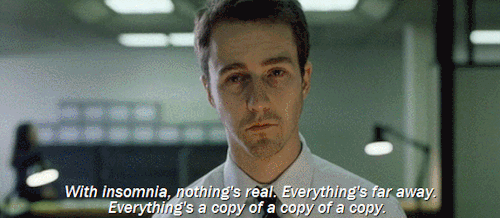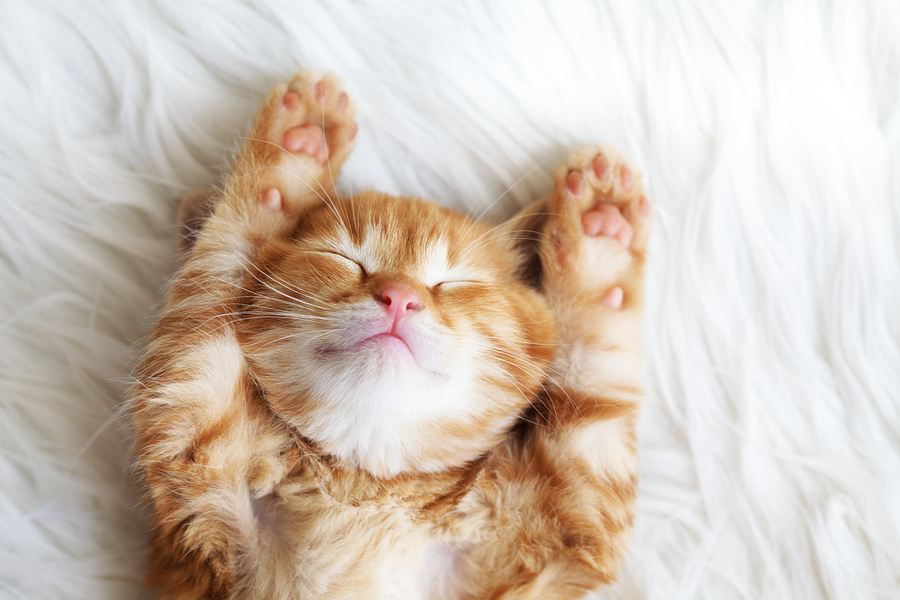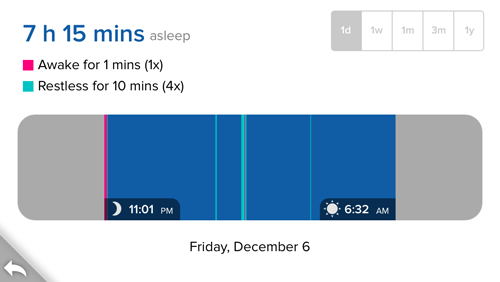How much sleep did you get last night? If you’re like many Canadians, it wasn’t enough. Research shows that 30% of us get fewer than 6 hours of sleep a night, with 47% reporting at least occasional insomnia. Rather than pursuing a better night’s sleep, many of us simply pour an extra cup of coffee and soldier on. Luckily, there are easy steps that you can take to combat poor sleep so you’ll wake up with the energy you need to take on the day.
* * *
Keep a Good Sleep Routine
- Make your room quiet and dark. Invest in blackout shades, a white noise machine or earplugs and sleep mask to make your room quiet, dark and cozy. Keep the room between 15 and 20 degrees Celsius.
- Avoid stimulants and substances that make it hard to sleep. Cut out caffeine in the afternoon, whether in coffee, tea or chocolate. Eat an early dinner and skip the nightcap in favour of some herbal tea.
- Check your pillows and mattress. If your mattress is over ten years old, it may be past its prime. Ditto for your pillows—they can wear out in as little as two years. If you’re waking up with neck or back pain that is preventing you from sleeping, make sure your bed isn’t the problem.
- Have a relaxing pre-bed routine. Reserve the last hour before you go to bed for relaxing activities. Take a bath, read a book or listen to a podcast. Avoid screens; they disrupt sleep. Mind still racing? Write out a to-do list for tomorrow—then put it away until morning.
[More at Harvard Medical School]
* * *
Call In Tech Support
Although electronics can disrupt sleep, they can also provide a lot of data on your sleep that can help you pinpoint problems. Furthermore, other appliances can allow you to navigate less-than-ideal sleep conditions. Here are three tools you can try.
- Wearable tech. A Fitbit or similar device can track your sleep alongside other data, allowing you to get a more complete picture of how well you’re sleeping as well as how much.
- Wake up light and alarm clock. Instead of being shocked out of bed by a loud buzzer, consider being gently pulled from sleep by an alarm clock that simulates the sunrise. Ahh. So much more relaxing.
- Sleep tracking app. If you can’t bear to be parted from your phone overnight, consider an app like Sleep As Android or Sleep Cycle to track your sleeping habits and provide more feedback on how well you’re sleeping. If you’re going this route, put your phone in airplane mode to avoid late-night disruptions.
[More at Lifehacker]
* * *
Get Help Winding Down
If you’re experiencing an occasional bout of insomnia, you might not need to jump immediately to a pill to help yourself sleep. Before you reach for a prescription, consider some all-natural remedies to get you back on track.
- Herbal tea. Chamomile, lavender, peppermint and valerian are all herbs connected to better sleep. Sometimes, a relaxing cup of tea can ease you into sleep.
- Magnesium. Even a marginal deficiency in this vitamin is connected to sleeplessness. You can get it from almonds and dark leafy greens, or consider a supplement.
- Sleepytime snack. Warm milk, turkey slices or a banana with peanut butter can often help trigger sleep. Eat about thirty minutes to an hour before heading to bed.
- Hot bath or shower. You can mimic the natural rise then fall of your body temperature that signals to your metabolism that it’s time to sleep.
- Laughter. If your sleeplessness is triggered by stress, a funny TV show or YouTube video can help you lighten up prior to resting.
- Journaling. Unburdening yourself prior to bed can also help prevent a racing mind and anxious thoughts from disturbing your rest. If pen and paper is not your thing, consider meditation or progressive relaxation.
[More at Good Housekeeping and WebMD]
* * *
Know When to Go to the Doctor

Insomnia is a persistent disorder that make it hard to fall or stay asleep, despite the opportunity for adequate sleep.
Sometimes it’s just a stressful day at the office that is keeping you awake. Sometimes it’s something much more serious. It’s time to go see a doctor when you’re getting these symptoms.
- Inability to stay awake while driving, working or other focus-driven tasks. It’s okay to drift off once in a while in a quiet room, but if you can’t stay awake when you need to focus, you’re entering a danger zone.
- Feeling exhausted, despite sleeping for eight or more hours. If you’re exhausted, yet still getting eight hours a night, you may have a sleep disorder that requires urgent medical attention.
- Sleepwalking or night terrors. These terrifying experiences are symptoms of something called parasomnia, a very treatable condition with the help of your doctor.
[More at The Sleep Foundation]
* * *
Sleep is a fundamental part of a healthy life. Good sleep can help you with many medical concerns, since you perform your best when you’re healthy and well-rested. Don’t let bad sleep ruin your nights and your days. Try our at-home tips, and if you’re still not getting your rest, go to the doctor.





